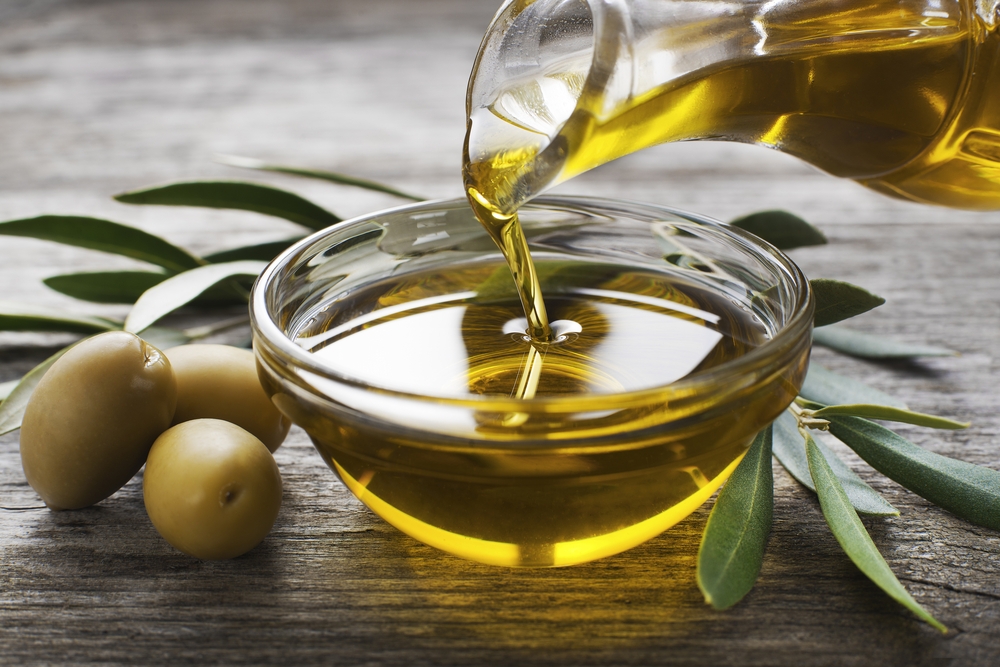
After the baby adds supplementary foods, giving the baby what has become a major concern for many parents.
[Babies under 1 year old do not need extra salt] has been the consensus of many precious mothers. What about the need for babies to start eating [oil] in what? There are so many kinds of oil, which is healthier and more suitable for babies to eat?
Today, we invited Teacher Li Liangli to discuss with you the things about the baby [eating oil].
Does the baby need oil during the supplementary food period?
Edible oil mainly provides the fat needed by the baby’s growth and development. During the supplementary food period of 6 ~ 12 months, the baby’s main fat sources are milk, eggs, meat and fish. Edible oil is not in the main position, but after adding supplementary food, it can be added in an appropriate amount according to cooking habits.
For babies who do not eat much meat dishes, 5 ~ 10 g edible oil (0.5 ~ 1 spoon of ordinary tablespoon) can be added as appropriate when making supplementary foods.
How does the baby eat oil after one year old?
According to the pagoda of balanced diet for women and children:
Babies aged 1-2 are recommended to take 5-15 g of oil daily (0.5-1.5 tablespoons of ordinary tablespoons)
Babies aged 2-3 are recommended to consume 10-20 g of oil (ordinary tablespoons 1-2 tablespoons) daily. Babies aged 4-5 are recommended to consume 20-25 g of oil (ordinary tablespoons 2-2.5 tablespoons) daily.
It should be noted that edible oil should be added according to the cooking method, with less or no frying or frying, and never eat it for the sake of eating oil.

Why don’t you choose what oil?
After one year old, the baby integrates into the family diet and can follow his parents [eat oil]. At this time, it is especially important to choose the right oil for the family.
Different edible oils contain different proportions and compositions of various fatty acids. We need to choose different edible oils according to different cooking methods (temperatures).
Common domestic Chinese cooking is mainly stir-frying. Oil with higher monounsaturated fatty acid content is more suitable. Compared with polyunsaturated fatty acid, oil has better heat resistance and is not easy to oxidize.
If there are middle-aged and elderly people and hyperlipidemia people in the family, it is more recommended to choose fats with high monounsaturated fatty acids, which can reduce the risk of cardiovascular diseases.
Common oil with high proportion of monounsaturated fatty acids includes olive oil and camellia oil. Many people do not know much about camellia oil. Camellia oil is a vegetable oil with high content of monounsaturated fatty acids, and vitamin E content is higher than olive oil. It is very good with traditional stir-frying and cold mix.

Of course, whether it is olive oil or camellia oil, safety and health are the most important. As for the safety of edible oil, there are two issues that are very concerned by precious mothers.
Can self-squeezed oil be given to babies?
The oil squeezed by my home looks pure natural, but there is actually a great potential safety hazard. Apart from the possible hygiene risks in the processing environment, the biggest problem lies in the possible presence of aflatoxin.
Aflatoxin is a highly toxic substance, which usually exists in moldy peanuts and corn. Eating self-squeezed oil with aflatoxin exceeding the standard will lead to liver cancer and death. Heating cooking is difficult to destroy this toxin, and it is best not to give it to the baby.
Edible oil plasticizer (DEHP) exceeds the standard. What is going on?
Before, a walnut oil was reported to contain plasticizer (DEHP), which worried many mothers very much.
Phthalate esters (DEHP) are additives used in plastics. DEHP may change body hormones, It has certain toxicity to the reproductive system. Other possible health effects include but are not limited to: Abnormal organ development, precocious puberty, obesity, etc. The infant and fetus stage is an important window period for growth and development. If exposed to these chemicals at this time, children’s intelligence and cognitive level may decline, which will have long-term and lasting effects on health.
However, plasticizers, including DEHP, exist in all aspects of life. It is impossible to completely avoid them. What we can do is to choose regular edible oil brands as much as possible, and to contact plastic products as little as possible in life to reduce risks.
